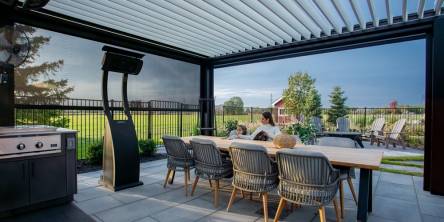Discover Interesting Facts About High-Density Polyethylene Pipe

The HDPE, or high-density polyethylene, is a synthetic polymer made from petroleum that is commonly used to produce plastic bottles, water pipes, corrosion-resistant piping, and more. Known for high density and immense strength, these pipes enjoy an average life span of more than 50 years. High-density polyethylene can be found in objects as ordinary as containers, bottles, helmets, toys, cosmetics, and all popular forms of domestic things. Being non-toxic, odorless, and tasteless, HDPE boasts a higher production volume worldwide. There are numerous HDPE manufacturers worldwide, but you need to find reliable ones to gain maximum benefits from these pipes.
High-density polyethylene has countless uses in homes, the fishing industry, and the agricultural industry. It would be best to first comprehend the essential qualities and benefits of HDPE before looking for them in India.
The advantages and parts of the pipes that use HDPE as their main components are-
-
These Pipes Are Ideal For Applications That Require A Lot Of Power
These pipes are highly suited for high-demand projects due to their longevity and outstanding temperature, chemical, and impact resistance. These are ideal solutions for projects involving fire system supply lines, electrical and communications wire and cabling, and plumbing pipes.
Chemicals, wastewater, compressed gases, slurries, and hazardous wastes can all be transported through the pipes, which have a long history of use in the oil, mining, and gas sectors. The pipes are, after all, rust-proof, corrosion-, chemical-and UV-resistant, bacteria-resistant, and unlikely to leak.
Furthermore, in addition to being robust, HDPE is incredibly flexible and lightweight, making it easier to carry and install than other materials. This makes using these pipes and fittings easier (and safer), but it also reduces the effort required to install them.
-
They're Excellent For Drainage
HDPE drainage systems are suitable, no matter what type of drainage application you require. These pipes and fittings are made to the most up-to-date industry standards. They can also be put together by electro-fusion, butt-fusion, flanges, or rubber ring joints. When you choose an HDPE drainage system from a reputed plastic manufacturing business, you can expect it to be resistant to chemicals and high temperatures and flexible and quiet. These drainage systems are ideal for residential and industrial buildings, labs, hospitals, and hotels because of their qualities.
-
Repairing HDPE And Fittings Is A Rare Occurrence
In addition to the numerous advantages this material offers, HDPE and fittings have the lowest annual repair rate of any piping material. Polyethylene is tough, sturdy, and highly durable, so this should be no surprise. Whether you value long service life, installation convenience, flexibility, chemical resistance, or sustainability, you can rest assured that pipes and fittings will meet your needs.
-
Costing
The pipes are relatively inexpensive when it comes to costs. You can receive a wide range of options at a low cost, including perforated HDPE. Polyethylene pipe is a versatile option for installing a water system and should be picked to save time, effort, and money.
Conclusion
Selecting HDPE pipes and fittings is a critical decision. So, it is strongly advised that you only buy these pipes from a trustworthy plastic manufacturing firm with years of experience and a long list of satisfied clients. Unfortunately, you won't get all HDPE's high-quality benefits unless you buy the highest-quality pipes.
Frequently Asked Questions
-
What are the requirements for high-density polyethylene pipes?
The pipe comes in standard lengths of 50 feet in diameters greater than 2 inches, with larger sizes available upon request. The spiral pipe is open in 250- and 500-foot lengths and has a diameter of 3". On special request, larger pipe sizes and coil lengths are available.
-
What is the purpose of high-density polyethylene pipe?
High-Density Polyethylene Pipe is a flexible plastic pipe commonly used to replace aging concrete or steel mains pipes. HDPE (high-density polyethylene) is a thermoplastic with high permeability and a robust molecular bond, making it ideal for high-pressure pipelines.
-
How can you tell if a piece of High-Density Polyethylene Pipe is of good quality?
The turn ups should be firm and smooth, with the bottom section being somewhat more comprehensive. At the bottom of turn-ups, there should be no contaminants, small holes, distortion, or damage. In good-quality pipes, the turn-ups are smooth and tidy, and after pressure from butt fusion welding seams, they will last a little longer.
Similar Articles
Industrial warehouses are essential hubs for storage, manufacturing, and distribution.
Construction sites are demanding environments where crews work long hours under challenging conditions. One often-overlooked factor that can make or break a project is sanitation.
Every year, as the holiday season approaches and homeowners begin decorating their properties with festive lighting, emergency electricians see a predictable spike in service calls.
Walk into a bathroom remodeled in the last five to ten years, and you’ll notice a common thread: fewer visual barriers.
Learn how septic system cleaning products restore flow naturally, breaking down waste, preventing clogs, and keeping your system healthy.
A louvered pergola is an outdoor structure with a mechanically adjustable roof system. Its purpose is to regulate sunlight, airflow, and precipitation in open-air environments.
You do not always need to do a major renovation, a huge budget, or even employ a contractor to make improvements on your home.
Struggling with recurring roof repairs? Discover why issues keep coming back, from poor installation to mismatched materials, and learn how to avoid costly fixes.
Explore modern wooden tiles designs, finishes, patterns & colour trends. Discover ceramic and vitrified wood tiles for timeless, elegant interiors.









